
Rocky Mountain spotted fever (RMSF) is a tick-borne disease, potentially lethal. The illness appeared for the first time in the Rocky Mountains and was named after that region.
Ticks attach to the skin and transfer the bacteria Rickettsia rickettsii which causes this illness.
Remember, not all ticks are infected with this bacterium. Many dogs in the United States have Rickettsia infection but these bacteria does not cause RMSF. The illness doesn’t spread from person to person.
If the illness is treated appropriately and in time the condition is relatively mild. Some people, especially elderly, however, could have serious consequences, including death. It is necessary to react promptly, to avoid the possible worsening of the condition.
Symptoms
Most people feel the first symptoms a week after the infected tick bites them. In some cases, it is possible to experience the signs of the infection even 2 weeks after the bite.
The symptoms are usually not specific to the illness, and include: high fever (above 38.9C or 102F), nausea, vomiting, headache, chills, tiredness, abdominal pain and appetite loss. Signs of Rocky Mountain spotted fever might progress and the patients then suffer from diarrhea, agitation, red rash on the wrists and ankles, extensive pain and aches and sometimes even delirium.Red, blotchy rash is specific to this illness. Your wrists and ankles are the places where it is most likely for the rash to occur, but it may spread to hands and feet, and then to complete arms or upper body. Some patients don’t have this symptom, making it harder to diagnose the illness.
You should consult a doctor if you happen to experience rash or some other above mentioned symptoms, right after the tick bite. It is recommended to take the tick that bite you to the doctor.
Complications
Early stages of RMSF are easily treated, but untreated cases might have severe consequences. Infection might get into your blood and affect other tissues and organs, like joints, heart, kidneys, and your nervous system.RMSF might cause heart, lung and kidney failure, meningitis or brain damage, shock, blood clotting problems. Severe complications include cases of gangrene, which could lead to amputation of your fingers, toes or whole affected extremities.
Untreated or delayed treatment of Rocky Mountains spotted fevers might result lethally.
Prevention
Protect yourself from the tick bites: wear long sleeves, long pants and shoes when walking through the woods or grass. Use insect repellents and follow the instructions on them. There are clothes impregnated with permethrin (insect repellent), which might be helpful to keep ticks away.Clean yourself and your animals and pets from ticks carefully. Found ticks should be completely removed with tweezers and the bite place cleaned with antiseptic.



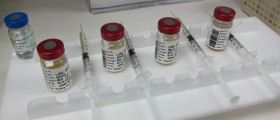
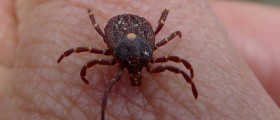
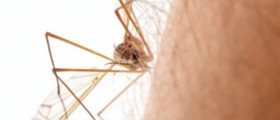
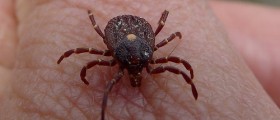
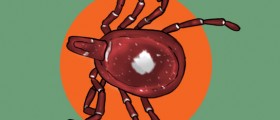


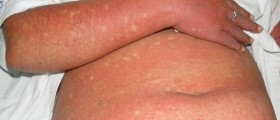





Your thoughts on this
Loading...